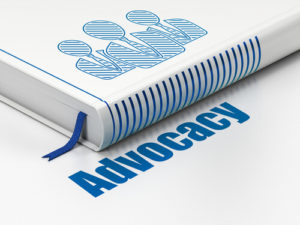Educational Advocacy: Getting Started

An advocate is defined as one that pleads the cause of another. Advocates often champion, endorse, and support the interests of another who may be unable to speak or do for themselves. Being an advocate for your special needs child may be one of the most challenging and exhausting experiences of your life. However, seeing your child receive the individualized and attentive education he or she deserves is not only rewarding, but also a huge relief.
At Stern Law, PLLC, we believe each and every child should receive a stellar education. Due to limited resources and the expense associated with good special education services, many disabled children do not receive the strong, individualized education or therapy they are legally entitled to receive.
Why Advocate for Children with Cerebral Palsy?
Although every child is entitled to a free appropriate public education, many children with disabilities will not receive first-rate special education services without some research, involvement, and prodding on the part of parents or a professional advocate. Teachers, principals, and school board leaders are often well-intentioned and want to do the best by your child, but with the budget constraints, limited resources, and a lack of understanding concerning many disabilities, children sometimes fall through the cracks.
Research demonstrates that early intervention and tailored special needs instruction can make a tremendous impact in your special child’s success. An advocate will ensure your child’s needs are not lost in the crowd.
Professional Advocation for Cerebral Palsy Injuries
Having grasped the importance of having someone champion the cause of their challenged child, parents often ask, why should I advocate? After all, most parents are not educators and may have very little experience with the school system, apart from once going through it. Here are some of the many reasons why parents are vital child advocates:
- You care the most. A parents love and desire to see their child succeed is simply unmatched. No one is going to care more than you about your child and their education;
- You are the expert on your child. You have valuable information to provide educators and the school system as a whole. Teachers and other professionals need to know what your child does at home, his or her abilities, strengths, difficulties, medical history, and hopes for the future. Your ideas are important and must be voiced;
- You are in the best position to judge the success or shortcomings of the education your child is receiving. A parent is the first to recognize whether their child is happy at school, learning, and thriving. Teachers are juggling multiple students, some also with disabilities, and might overlook your child’s lack of progress or discontent. It is up to you to fight for your child when you notice something in their education is lacking.
With all this being said, it is important to recognize that sometimes a professional advocate is necessary to obtain the services your special child needs. Professional education advocates evaluate children with disabilities and make recommendations about special education programs, support, and services. Educational advocates will attend meetings on your child’s behalf and, using their expertise in the field, can effectively argue for your child’s best interests. If you have a child with severe disabilities or one that the school system simply seems unwilling to accommodate, a professional educational advocate, working alongside you, will provide essential support.
Children With Birth Injuries Have Educational Rights
Under the Individuals with Disabilities in Education Act, or IDEA, every child has the right to a Free and Appropriate Public Education (FAPE). This is one of the most misunderstood concepts of the IDEA and often causes great conflict between parents and educators. Here are some facts that help to define FAPE:
- Special education is provided at public expense;
- Children with disabilities have the right to be provided with modifications, accommodations, and support services under their Individual Education Programs (IEPs);
- Support services can include transportation, audiology services, speech language pathology, psychological services, music therapy, and the like, as required to assist your child’s development;
- Each school district must ensure the quality of educational services provided to students with disabilities are equal to those provided to non-disabled students;
- The special education program must address a child’s unique needs as identified by observation, evaluations, and the child’s educational team;
- Each child receiving special needs services must have an IEP, which is designed for your child and your child alone;
- Services must be coordinated to ensure the child is making adequate progress;
- Students with a disability must have access to extracurricular and nonacademic activities equal to those provided to non-disabled students.
This is just a brief overview of your child’s rights as a student. A more thorough look at the IDEA and its demands for the public school district can be found on our website.
Stern Law, PLLC: Cerebral Palsy Attorneys & Birth Injury Advocates
Ken Stern, founder of Stern Law, PLLC, has learned in his over thirty years working with the families of disabled children to never underestimate the power of a parent. Parents who zealously advocate on behalf of their children can make all the difference in shaping their child’s future.
For more information about how you can advocate for your child’s education rights, please call Stern Law, PLLC at (800) 462-5772 today. We are more than just a law firm, and members of our team can provide resources to help you with a variety of non-legal matters related to helping your child thrive in spite of his or her obstacles.







